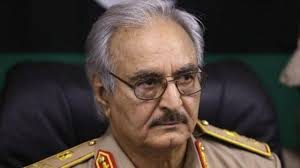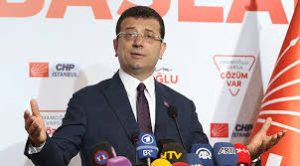Although Libya and Venezuela are located in different parts of the world and have a completely different history and structure in terms of civil society, there are many similarities between the current geo-political situation between two countries which highlight the fractured state of the global geo-political system.

In the first place both countries have different people claiming leadership. In Libya, Field Marshal Khalifa Hafter broke ranks with the internationally recognized government and has since managed to occupy or otherwise gain the allegiance of much of the country. The United Nations officially still recognizes the Government of National Accord and its leader, Fayez al-Serraj but his authority does not extend far from Tripoli. Hafter announced an assault on the capital a few days ago but it is unclear if he has the military forces required to take and hold the city. With a scheduled U.N. peace conference just a few days away, the country seems to have two leaders and two governments, each pursuing alternative narratives about what is really happening.
A very similar situation is playing out in Venezuela only although only one side in the that conflict controlling a significant military presence. Nicholas Maduro claims that his election in 2018 was legitimate and that he still has five years left in power. The president of the congress, however, Juan Guaidó insists that the election was unconstitutional an fraudulent and therefore he is a the legitimate acting President of the country.
Both situations are also made more complex by outside powers who back different sides in the conflicts. In Libya,it appears that Russia, the UAE and Saudi Arabia are supporting General Hafter while the United States, France and Italy still support the government in Tripoli. In Venezuela, Russia, China, and Turkey support Maduro while the United States, the EU and many South American countries have officially recognized Guaido as the legitimate president.
The oil wealth of both countries is clearly part of the reason why the outside world is so interested in the outcome and in both countries output has fallen sharply in recent years. In Venezuela this is due to gross mismanagement and underinvestment in the national oil company PDVSA and in lLibya it has mainly been due to the civil war.
There is also huge amounts of money at stake in both situations although in very different circumstances. War on the Rocks, a website reports that part of the conflict in Libya is about who will control the country’s central Bank which has continued to function throughout the country’s long process of collapse and national re-construction and is currently reported to have $ 70 billion in cash held in international banks. Venezuela, on the other hand is technically in default although it does have assets outside the country such as the oil company Citgo in the U.S and reportedly owes China and to a lessor extent Russia billions of dollars for loans extended to Maduro and his predecessor, Hugo Chavez.
The deeper question is what is legitimacy and who decides who should be in power if a country is at conflict with itself? When that conflict turns to open war as it did in Syria then the guns and bombs will determine the outcome. When things are more political, however, it is harder to say what will happen.
The Army, to date, has appeared to back Maduro but stopped short of imposing marshal law and may be waiting to see who will emerge victorious. According to Jason Pack who runs a web site and a consulting company on Lybia., the situation in Libya is actually not so violent and while the two sides talk about war, there have actually been few casualties in the last few years. His view is that General Hafter is trying to emerge as the right person to lead the new government with the support of the international community.

Once upon a time, the British Empire could determine which side would “win” in such civil conflicts. During the cold war Washington or Moscow could determine what would happen in their respective spheres of influence. Today, however, things are much more complicated.
In a sign of the times, the BBC reports that Recep Erdogan’s AK party may not accept the result of municipal elections held last March 31st where they appeared to lose control of Ankara, Istanbul, and Izmir. It seems that the international community still has the ability to ensure that countries celebrate elections but may no longer be able to ensure that such elections are fair or that the will of the people is really respected.

